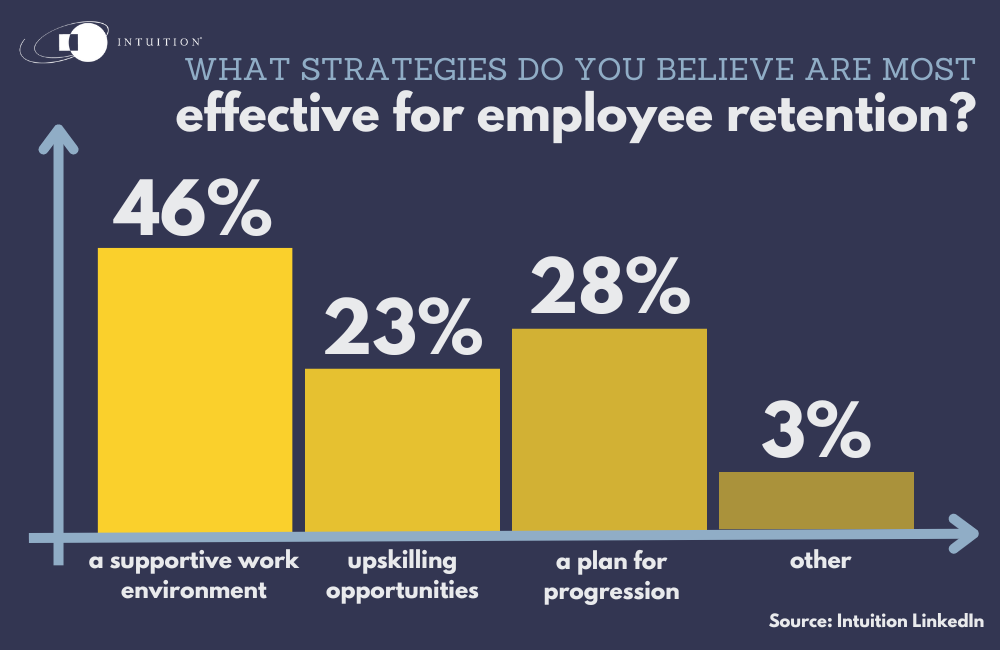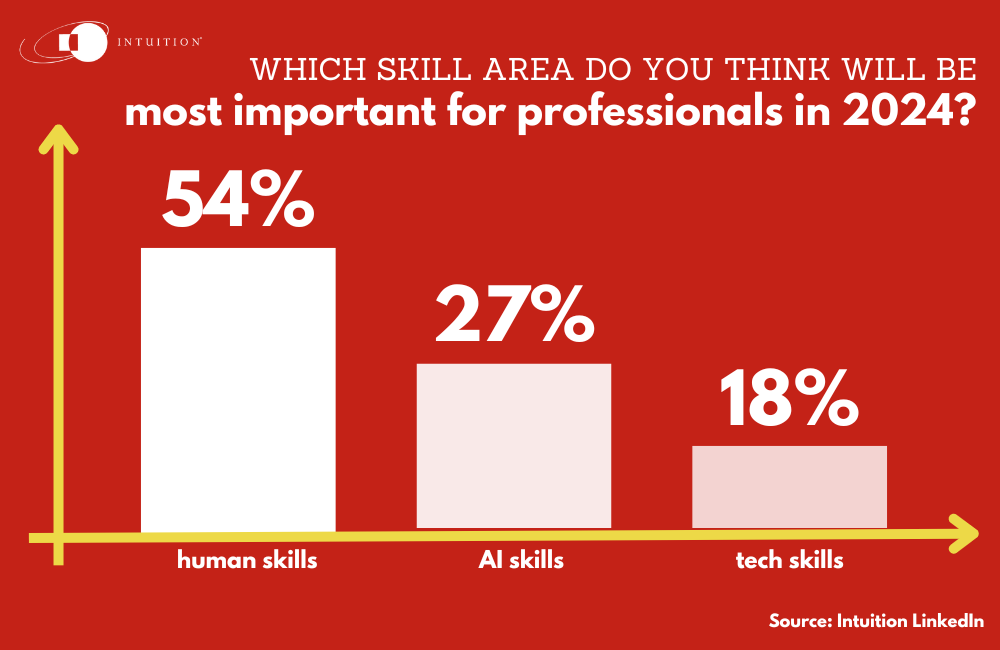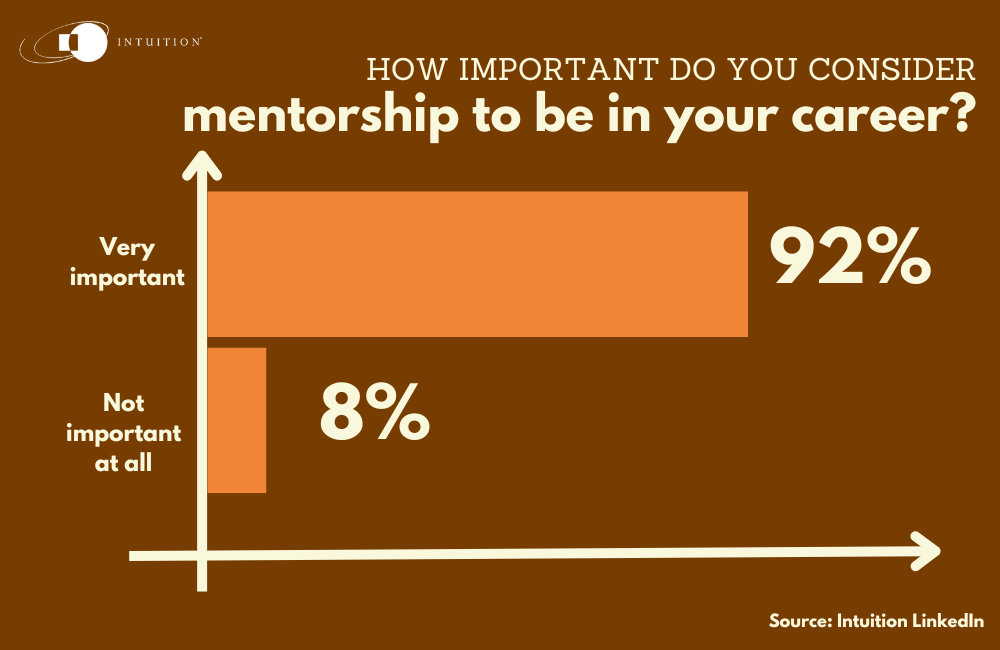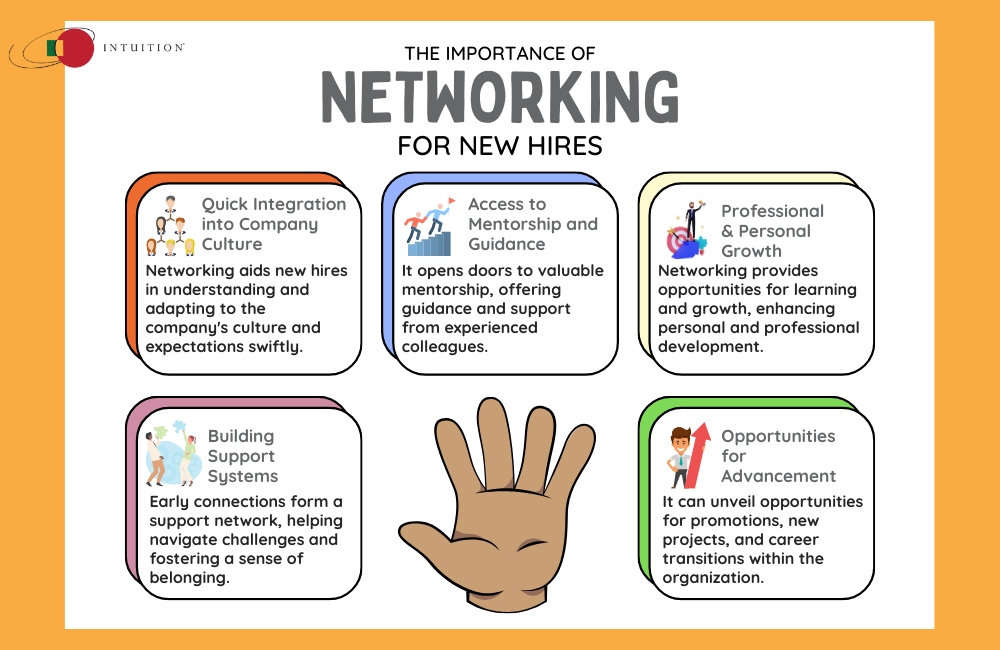How networking fosters professional relationships for new hires
Professional relationships and networking play a pivotal role in the growth of an individual and an organization. These relationships are developed over time, nurtured through understanding, mutual respect, and common goals. Networking, on the other hand, is a proactive approach to creating and maintaining these relationships. It involves reaching out to others, sharing ideas, and seeking opportunities for collaboration.
In the corporate world, networking is often seen as a means to an end. The end, in this case, is usually professional growth and advancement. However, networking can offer so much more than that: it can foster a sense of community, create opportunities for mentorship, and open doors to new possibilities.
Broadly speaking, professional relationships and networking are the lifelines that connect individuals within an organization. They act as bridges that facilitate communication, collaboration, and ultimately drive the success of the organization.
Other articles in this series:
[Trends shaping the of future onboarding in 2024]
[Unpacking the challenges new hires face in 2024]
[How hybrid work eases the transition for new hires]
[How continuous learning and development shapes success for new hires]
The importance of building professional relationships
Discussing the importance of building professional relationships and networking within any company provides insights into how organizations can create opportunities for growth and development. Professional relationships are the backbone of any successful organization. They foster trust, encourage collaboration, and contribute to a healthy, productive working environment.
When these relationships are strong, they lead to increased job satisfaction, better job performance, and a higher level of commitment to the organization. They can also help individuals navigate the complexities of office politics, manage conflicts, and find solutions to problems.
Moreover, professional relationships can also open doors to new opportunities within the organization. They can lead to promotions, new projects, and even career transitions. In essence, these relationships are not just about making connections; they are about creating a strong support system that can help individuals successfully navigate their professional journey.

The role of networking within a company
Networking within a company is an essential aspect of professional development. It allows individuals to connect with others, learn from their experiences, and gain insights into the various different roles and responsibilities within the organization. Networking also provides opportunities for mentorship, collaboration, and professional growth.
Effective networking involves more than just attending meetings or events. It requires active engagement, consistent follow-ups, and an authentic interest in others. It is about building relationships, not just making connections.
Furthermore, networking can also play a crucial role in fostering a sense of belonging within the company. When individuals feel connected to their peers, they are more likely to feel engaged, committed, and satisfied with their work. In essence, networking can contribute to a positive work culture and a more productive work environment.
How team-building activities foster professional relationships
Team-building activities offer a unique opportunity to foster professional relationships and networking within the company. They provide a platform for individuals to interact, collaborate, and connect on a personal level. These activities are designed to break down barriers, build trust, and foster a sense of camaraderie among team members.
Team-building activities can range from simple conversational ice-breakers to complex problem-solving exercises spread over a number of days. They can involve physical activities, creative tasks, or intellectual challenges. Regardless of the nature of the activity, the goal is to encourage individuals to work together, communicate effectively, and build strong relationships.
Moreover, team-building activities can also help individuals understand their own strengths, weaknesses, and working styles. They offer insights into how individuals respond to challenges, handle conflicts, and work effectively in a team. This understanding can lead to improved team dynamics and morale, better communication, and a more cohesive unit.
New hires: The importance of networking early on
For new hires, networking early on in the onboarding process is crucial. It helps them understand the company culture, get to know their peers, and establish their unique presence within the organization. Networking also provides new hires with a platform to showcase their skills, share their ideas, and contribute to the organization’s goals.
Networking can also help new hires navigate the initial challenges of a new job. It can provide them with the support they need to overcome obstacles, adapt to new roles, and grow professionally. Moreover, networking can also create opportunities for mentorship, which can be invaluable for new hires.
In essence, networking early on in the onboarding process can set the stage for a successful career. It can help new hires make a positive impression, build strong relationships, and carve a niche for themselves within the organization.

Opportunities for new hires to connect with peers
Organizations can create opportunities for new hires to connect with their peers through team-building activities, professional development events, and informal meet-ups. These disparate contexts allow new hires to interact with their peers in relaxed, informal settings. They provide a space for new hires to share their experiences, learn from others, and build strong relationships.
Team-building activities, in particular, can be extremely effective in fostering connections among new hires. These activities encourage collaboration, communication, and mutual respect. They allow new hires to work together, solve problems, and learn from each other.
Professional development events, on the other hand, offer a more formal platform for networking. They provide new hires with an opportunity to learn from industry experts, gain insights into the latest trends, and connect with their peers on a professional level.
Opportunities for new hires to connect with senior colleagues
Connecting with senior colleagues can be a daunting task for new hires. However, organizations can make this process easier by creating opportunities for interaction. This could be through mentoring programs, team-building activities, or professional development events.
Mentoring programs, in particular, can be extremely beneficial for new hires. They provide an opportunity for new hires to learn from experienced professionals, gain insights into the workings of the organization, and develop their skills.
Team-building activities can also foster connections between new hires and senior colleagues. They create a platform for individuals to interact on a personal level, break down hierarchies, and build strong relationships.
Professional development events, on the other hand, offer a more formal platform for networking. They provide new hires with an opportunity to learn from industry experts, gain insights into the latest trends, and connect with senior colleagues.

Professional development events as a networking platform
Professional development events serve as excellent networking platforms. These events can range from workshops and seminars to conferences and training sessions. Regardless of the format, these events are designed to foster learning, collaboration, and networking.
They bring together individuals from different levels of the organization, providing a unique opportunity for networking and collaboration. These events offer new hires an opportunity to learn from industry experts, gain insights into the latest trends in their particular field, and connect with peers and senior colleagues.
Moreover, professional development events also provide an opportunity for new hires to showcase their own skills, share their ideas, and contribute to the organization’s goals. They offer a platform for new hires to establish their presence within the organization and build strong professional relationships.
Informal meet-ups: A casual approach to networking
In addition to formal networking platforms, informal meet-ups also play a crucial role in fostering professional relationships. These meet-ups provide a relaxed and casual environment for individuals to connect, share ideas, and build relationships.
Informal meet-ups can take various forms, such as coffee breaks, lunch meetings, or after-work gatherings. Regardless of the format, these meet-ups provide an opportunity for individuals to interact on a personal level, beyond the confines of their professional roles.
Moreover, informal meet-ups can also foster a sense of community within the organization. They can help individuals feel connected to their peers, feel valued, and feel as though they are genuinely a part of the organization. In essence, informal meet-ups can contribute to a positive work culture and a more engaged workforce.

Conclusion: The future of professional relationships and networking
The future of professional relationships and networking looks promising. With the increasing emphasis on collaboration, teamwork, and shared goals, the importance of building strong professional relationships cannot be overstated.
Organizations are increasingly recognizing the value of networking and are creating opportunities for individuals to connect, collaborate, and grow. Whether this is through team-building activities, professional development events, or informal meet-ups, the goal is to foster strong relationships, promote a sense of community, and drive the success of the organization.
For new hires, networking early on in the onboarding process can set the stage for a successful career. It can help new hires navigate the inevitable initial challenges, establish their unique presence, and carve a particular niche for themselves within the organization.
In conclusion, professional relationships and networking are not just about making connections; they are about building a strong support system, fostering a sense of belonging, and driving personal and professional growth.


